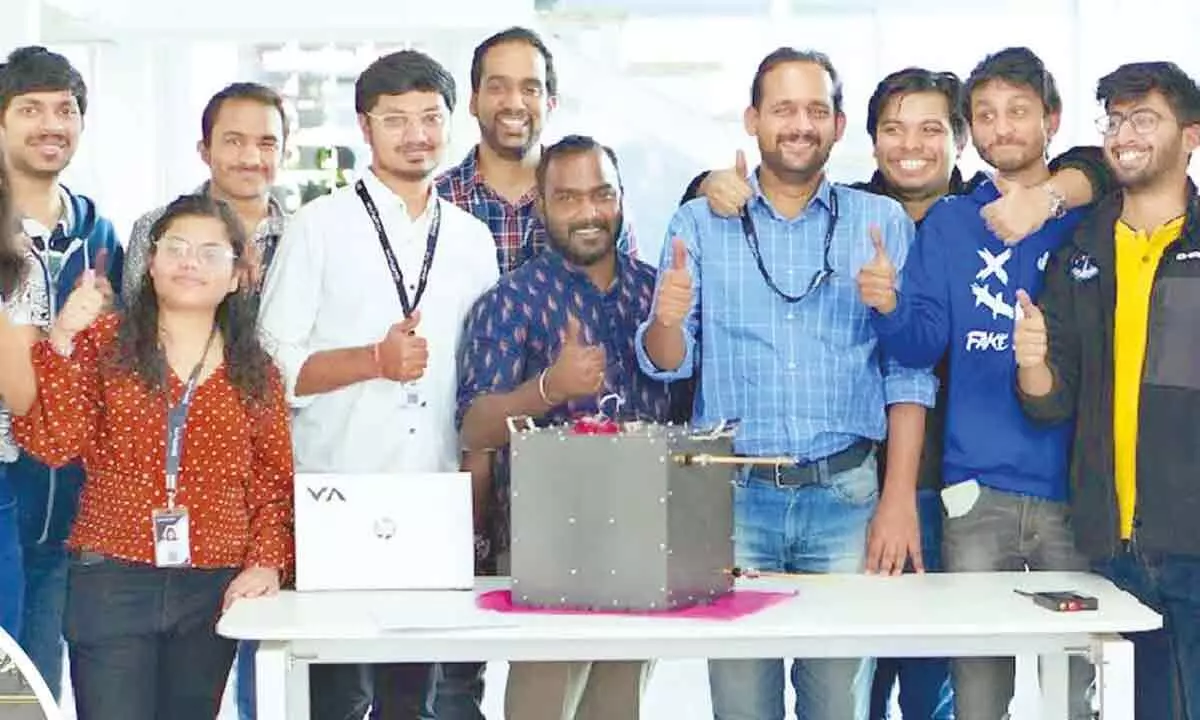Hyd’s Dhruva to usher in 2024 with new space mission

The city based spacetech start up Dhruva Space to usher in new year with its LEAP-TD (Launching Expeditions for Aspiring Payloads-Technology Demonstrator) mission is scheduled to take off on board the Indian Space Research Organisation’s PSLV-C58 from the Sriharikota spaceport on Monday.
Hyderabad: The city based spacetech start up Dhruva Space to usher in new year with its LEAP-TD (Launching Expeditions for Aspiring Payloads-Technology Demonstrator) mission is scheduled to take off on board the Indian Space Research Organisation’s PSLV-C58 from the Sriharikota spaceport on Monday.
The mission aims to validate the functionality and robustness of the P-30 platform and its varioussubsystems in-orbit.These subsystems include On-Board Computer, TTC in UHF, Beacon in UHF,Attitude Control System with a Reaction Wheel, and Power Distribution Board. Dhruva Space will also be collaborating with Indian Institute of Space Science and Technology (IIST), Thiruvananthapuram, for carrying out Telemetry, Tracking & Command (TT&C) activities at their Ground Station.
Designed for Low Earth Orbit (LEO) operations, Dhruva Space’s P-30 nanosatellite platform represents the culmination of extensive research, development, and engineering expertise which will be a determining enabler in the upcoming satellite missions of Dhruva Space and its customers.
"We are excited about the imminent validation of our P-30 nanosatellite platform aboard ISRO'sPSLV-C58. The LEAP initiative of Dhruva Space marks a significant moment, underscoring our commitment to delivering full-stack and hosted payload solutions to our customers. This will be further enriched by new, upcoming pursuits in the fields of Earth Observation, IoT solutions, and more" says Sanjay Nekkanti, Chief Executive Officer, Dhruva Space.
Nanosatellites are often employed in LEO missions which are very dynamic with respect to altitude control; therefore, reorientation of the spacecraft in relation to the Earth and the Sun, is crucial. One of the key components in the P-30 is a Reaction Wheel from French strategic equipment supplier Comat, with whom Dhruva Space officialised a partnership in February 2023. Typically, satellites are integrated with four Reaction Wheels for three-axis stabilisation, to generate internal torque, enable high precision pointing, and to maintain power efficiency.
Dhruva Space’s LEAP initiative will then transition into full-fledged hosted payload solutions for Spacemissions, signifying Dhruva Space’s readiness to offer hosted payload services to the world. A hosted payload service comprises a portion of a satellite, such as a sensor, instrument or a set of communications transponders that are owned by an entity other than the primary satellite operator. The hosted portion of the satellite operates independently of the main spacecraft, but shares the satellite’s power supply, transponders, and in some cases, ground systems.








